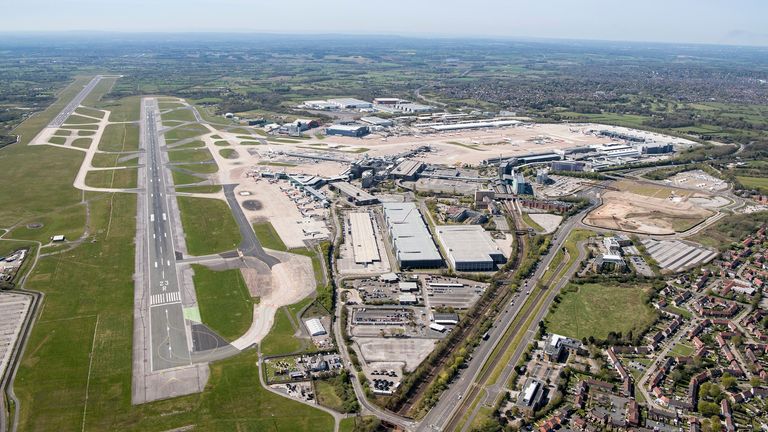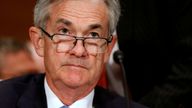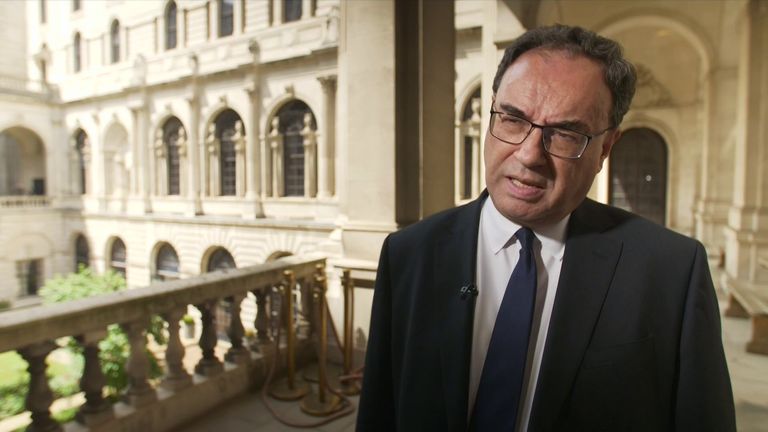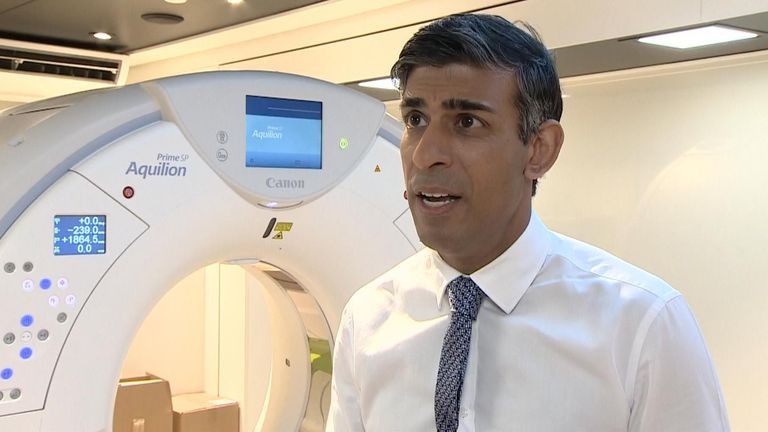Union claims 'whopping' 17% Manchester Airport pay win as Bank of England demands restraint
Unite says its members at Manchester Airport will benefit on several levels but the government and the bank argue that high rises only help prolong the cost of living crisis.
Thursday 29 June 2023 05:27, UK
The country's second-largest union says it has negotiated a "whopping" 17% pay deal, just days after the governor of the Bank of England urged wage restraint amid the battle against inflation.
Unite said 2,000 workers at Manchester Airport, including firefighters, security, engineering, airfield operations, traffic marshals and car parking staff, would benefit from a series of awards that were negotiated without the need for a strike ballot.
It said that the pay deal was worth a rise of 17% over two years and included an additional lump sum worth up to 9.6% covering the same period.
The union added that the talks also secured defined benefit pension protections for the workers and more pay and pension contributions for additional workers on the National Minimum Wage.
It said that the workers involved had "overwhelmingly backed" the deal.
Manchester Airport suggested the 17% figure should not be taken as an all-encompassing number for all individuals as it was made up of many single elements.
But a spokesperson said: "We are pleased to have agreed a pay deal that benefits all our colleagues covered by the collective bargaining agreement at Manchester Airport.
"The pay award is over two years and includes a phased increase to base pay for all colleagues, a cash lump sum and improvements to existing pension arrangements and a further extension of the transitional arrangements for our ex-defined benefit pension scheme members."
The settlement, on the face of it, reflects a desperation among employers generally to retain and attract staff in the UK's tight labour market.
Staffing shortages since the COVID pandemic have hit many sectors Europe-wide.
In the case of airports, flight limits were imposed last year at Heathrow due to staff shortages while Manchester was affected by related delays and cancellations.
While the pay deal revealed by Unite will better shield the beneficiaries from the effects of the evolving cost of living crisis, the size of the settlement will not be welcomed by the Bank of England.
It has long urged restraint among employers, arguing last week that high pay settlements are being reflected in the inflation figures - feeding consumer spending power at a time when it is trying to cool demand and therefore the pace of price growth.
Unions, which have been locked in a series of pay fights across the public and private sectors, refute the bank's position.
They say it is unfair that ordinary workers have to pay for a crisis they did not create and are overdue a pay uplift, especially in the public sector, after years of below-inflation settlements.
The government, which has a target to halve inflation this year, has signalled it will take a harder line in pay talks which include disputes involving senior doctors and train operator employees.
The latest official wage figures showed regular pay growing at an annual rate of 7.2% in the three months to April - edging closer to the current inflation rate of 8.7%.
It is the governor's case that the wage increases are feeding into so-called core inflation, which actually rose last month.
The bank responded by imposing a 0.5 percentage point interest rate increase, inflicting more pain on borrowers in the process.
Rising interest rate expectations have been the major factor behind the recent mortgage market turmoil, that has seen fixed rates jump beyond 6% and rent demands jump.






